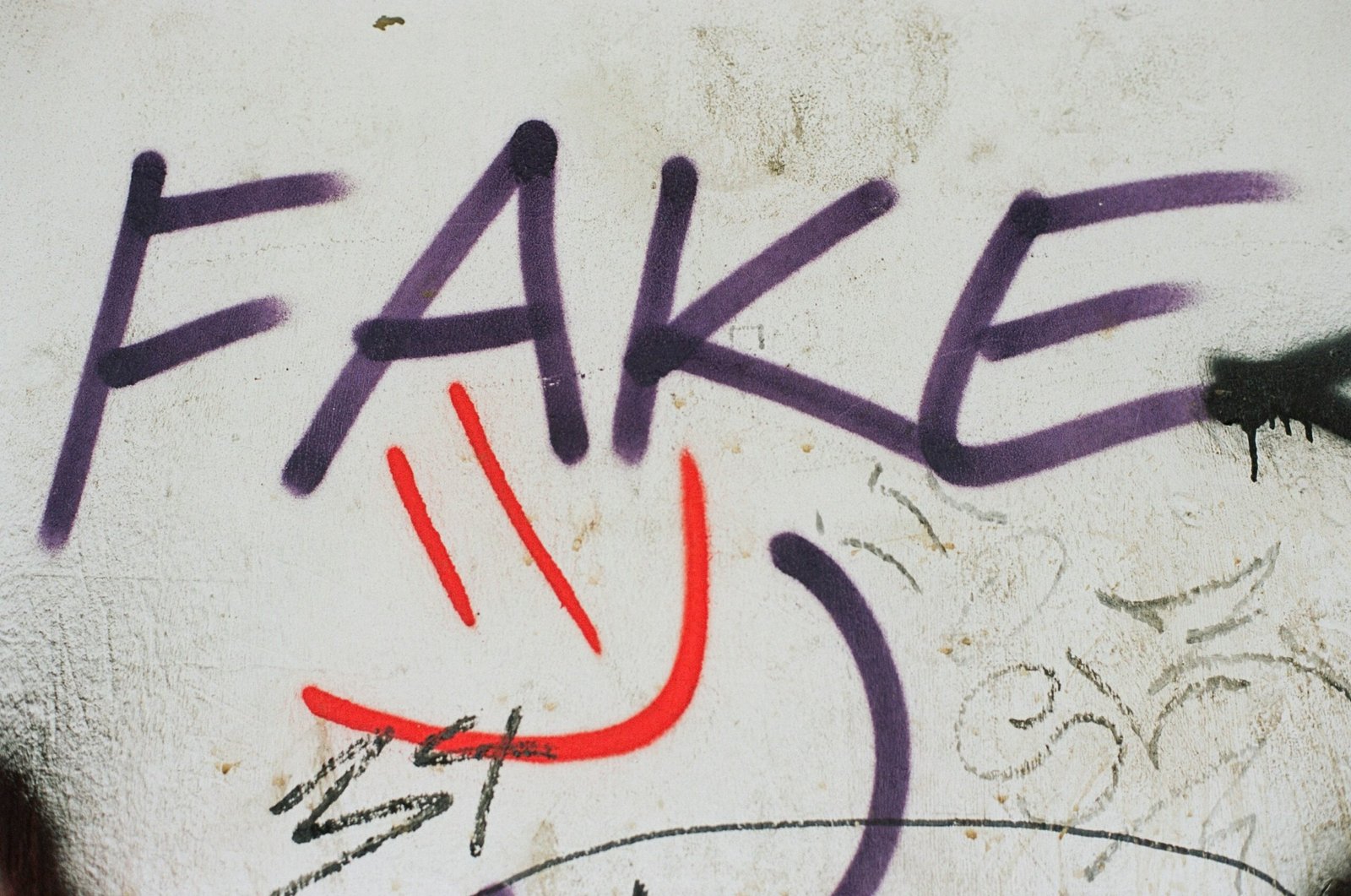
Introduction: The Rise of Deepfake Technology
Deepfake technology refers to the use of artificial intelligence (AI) to create hyper-realistic images, videos, and audio that can convincingly manipulate media content. By employing machine learning algorithms, particularly generative adversarial networks (GANs), this technology enables users to swap faces, imitate voices, and even fabricate entire scenarios. Its impressive capabilities have given rise to various applications, ranging from entertainment and social media to more controversial uses such as misinformation and fraud.
Over the past few years, the development of deepfake technology has accelerated dramatically. With the proliferation of sophisticated AI tools, the barriers to creating deepfake content have significantly diminished. As a result, even amateur users with limited technical expertise can produce high-quality fake multimedia. This accessibility has raised alarm bells among policymakers and technology leaders, particularly regarding the potential for misuse. The emergence of celebrity deepfake scams, which exploit the likeness of famous individuals to perpetrate fraud, has become a prominent concern in various online spaces, especially on social platforms like Facebook.
The consequences of these scams are far-reaching, affecting both the victims and the wider online community. In Australia alone, losses from deepfake scams reached an alarming $43 million, prompting urgent calls for action. As the awareness of such threats grows, platforms like Facebook are increasingly under pressure to combat deepfake fraud effectively, implementing stricter policies aimed at safeguarding users from such deceptive practices. The fight against these scams requires a multifaceted approach, blending technology, user awareness, and robust regulations. As we delve into the implications of deepfake technology, it becomes essential to recognize the risks it poses and the necessary measures needed to mitigate its impact.
Understanding Celebrity Deepfake Scams
Celebrity deepfake scams have emerged as a significant threat within the digital landscape, leveraging advanced technology to manipulate audio and visual content. Scammers use this sophisticated technique to create realistic videos or audio recordings that falsely depict celebrities endorsing non-existent products or services. This deceptive practice often involves taking genuine footage of a celebrity and altering it to deliver misleading messages, thereby exploiting the trust and credibility associated with well-known figures.
The mechanics behind these scams typically involve the use of artificial intelligence and machine learning algorithms, enabling the creation of convincing yet fraudulent content. This is particularly damaging as many individuals often do not recognize deepfake technology’s potential for deceit. Scammers target unsuspecting victims through social media platforms, including Facebook, by strategically sharing these altered videos to gain traction and credibility. The victims are lured into believing that reputable celebrities are promoting fake products, leading to significant financial losses.
Several notable incidents have exemplified the dangers posed by celebrity deepfake scams, reinforcing the urgency of addressing this issue. For instance, some miscreants have utilized deepfake technology to create content featuring celebrities endorsing lucrative investment schemes or cryptocurrency ventures that ultimately proved to be fraudulent. Such scams have resulted in substantial financial losses, not only for those duped but also for the reputations of the celebrities involved, leading to increased scrutiny and concern.
As the prevalence of celebrity deepfake scams continues to grow, platforms like Facebook must enhance their deepfake policies to combat this fraudulent activity effectively. Fighting deepfake fraud on Facebook requires a comprehensive approach to identifying and removing misleading content while educating users on recognizing potential scams. Addressing these issues is critical to safeguarding users from the financial and emotional ramifications associated with losses from deepfake scams.
The Financial Impact: A Closer Look at Australian Losses
The emergence of celebrity deepfake scams in Australia has resulted in significant financial repercussions, with reported losses amounting to an alarming $43 million. This staggering figure highlights the urgent need for awareness and action surrounding these fraudulent activities, which have rapidly gained traction on social media platforms, particularly Facebook. The integration of sophisticated technology has enabled scammers to create realistic impersonations of celebrities, which they leverage to deceive unsuspecting victims.
Statistics reveal that a diverse demographic has fallen victim to these scams, underscoring the widespread nature of the issue. Research indicates that individuals aged 18 to 34 represent a substantial portion of those affected, often being more susceptible to online manipulation due to active engagement on social media. Additionally, older adults, specifically those aged 55 and above, have reported substantial losses as well, drawing attention to the fact that deepfake scams can impact anyone regardless of age. This trend emphasizes that fighting deepfake fraud on Facebook necessitates an awareness campaign targeting various demographic groups.
Various forms of scams have been identified as prevalent in this landscape. Some of the most common include fake investment opportunities and deceptive giveaways purportedly endorsed by famous personalities. These scams typically allure victims with the promise of quick financial returns or prized possessions, only to lead to devastating outcomes. The losses from deepfake scams not only inflict financial distress but can also erode the trust individuals have in social media platforms and celebrities alike.
In conclusion, the financial impact of celebrity deepfake scams within Australia is sobering, with significant losses experienced across diverse demographics. As public awareness increases and efforts to develop robust facebook deepfake policies take shape, it is crucial to continue evaluating the effectiveness of strategies aimed at combating these sophisticated frauds.
Facebook’s Response: Crackdown on Deepfake Content
In response to the alarming increase in celebrity deepfake scams, which contributed to significant financial losses amounting to $43 million in Australia, Facebook has implemented a series of proactive measures aimed at combating deepfake content. These actions include the establishment of robust policies specifically targeting the distribution of deepfake materials on its platform. By recognizing the potential harm that deepfake scams can inflict on consumers and public figures alike, Facebook has committed to enhancing the safety and trust of its user community.
One of the key aspects of Facebook’s strategy is the introduction of advanced detection tools designed to identify and mitigate deepfake content before it gains traction. These tools employ sophisticated algorithms that can analyze videos and images for signs of manipulation. By leveraging artificial intelligence and machine learning technologies, Facebook aims to stay ahead of the curve in the fight against deepfake scams, effectively minimizing the potential for users to fall victim to fraudulent activities.
In addition to the technological advancements, Facebook recognizes the importance of educating its users about the dangers of deepfake fraud. Through various educational initiatives, the company aims to increase public awareness regarding the risks associated with deepfake scams, empowering users to recognize and report suspicious content. This focus on user education is a crucial component of Facebook’s comprehensive approach to fighting deepfake fraud on Facebook.
Despite these proactive efforts, Facebook faces significant challenges in identifying and regulating deepfake content. The rapid evolution of deepfake technology makes it increasingly difficult to remain vigilant against an array of deceptive practices. However, Facebook’s commitment to creating a safer online environment, coupled with user engagement and continuous adaptation of its policies, is central to addressing the persistent threat of deepfake scams effectively.
In conclusion, Facebook’s proactive measures signify a significant step towards combating celebrity deepfake scams and protecting its users from the associated risks. By focusing on policy enhancement, technological advancement, and user education, the company aims to create a safer platform for all. However, the ongoing endeavor to tackle deepfake content will require continuous effort and adaptation in response to emerging threats.
Legislation and Regulation: A Global Perspective
The emergence of deepfake technology has prompted governments worldwide to reconsider and strengthen legal frameworks aimed at protecting consumers from fraudulent activities such as celebrity deepfake scams. As these artificial intelligence-generated videos become increasingly sophisticated, many countries have recognized the urgent need to implement regulations that specifically address the misuse of this technology in the realm of online scams. For instance, the Australian Government has taken notable steps following significant losses from deepfake scams, which totaled around $43 million recently. In response, they have proposed stricter legislation to guide how digital content is created and shared online.
In the United States, various states have instituted laws targeting deepfakes, particularly those used in manipulative campaigns or to harm individuals’ reputations. These regulations serve as a legal framework to hold scammers accountable while also ensuring that genuine artistic or satirical uses of deepfake technology are not unduly restricted. Moreover, there has been considerable momentum in the European Union as well, where regulatory bodies have taken a proactive stance. The EU’s proposal for the Digital Services Act includes provisions specifically addressing deepfake content, establishing guidelines that technology platforms must follow to combat the proliferation of deepfake fraud on Facebook and other social media.
While regulations are in varying stages of development across different countries, a consistent theme emerges: the need for collaboration between governments, technology companies, and users. Facebook’s deepfake policies reflect this collaborative approach, emphasizing the platform’s commitment to consumer protection. As governments continue to draft and enact legislation, ongoing dialogue will be critical in ensuring that the right balance is struck between innovation and the safeguard of individuals from deepfake-related scams. In conclusion, global legislative efforts are set to evolve as the technology and its implications continue to mature.
The Role of Technology in Fighting Deepfakes
As deepfake technology continues to advance, its potential for misuse has prompted the development of various technological solutions aimed at combating celebrity deepfake scams. Recognizing the risks associated with manipulated media, researchers and technology companies have turned their focus towards creating AI detection tools and machine learning algorithms designed to identify these fraudulent alterations effectively.
At the core of these solutions lies advanced artificial intelligence, which can analyze video files for inconsistencies that are often indicative of deepfake content. This includes assessing light patterns, facial expressions, and audio-visual synchronicity to ascertain authenticity. The algorithms are trained on vast datasets that encompass a multitude of both genuine and fake instances of videos, enabling them to learn the subtle distinctions that may escape the human eye. In this way, AI tools have shown promise in distinguishing real from fake, allowing platforms like Facebook to better moderate content and reduce the potential incidents stemming from deepfake scams.
Despite these technological advancements, the landscape remains challenging. Many current detection methods are still in their nascent stages, making it difficult to achieve high accuracy rates across diverse types of content. Nevertheless, ongoing research and investments in developing more sophisticated models are paving the way for improved detection capabilities. These efforts are crucial, especially given the alarming figures indicating substantial losses from deepfake scams—like the reported $43 million in Australia alone.
Tech companies are also exploring collaborative approaches to fighting deepfake fraud on Facebook. By sharing insights and resources, the combined efforts aim to enhance the effectiveness of existing solutions. As technology progresses, it is hoped that these innovative strategies will lead to a significant reduction in deepfake-related incidents, ultimately safeguarding users from various types of online deception.
Educating Consumers: Safeguards Against Deepfake Scams
In an era where advanced technology enables the creation of realistic digital forgeries, understanding how to identify and safeguard against celebrity deepfake scams is crucial for consumers. As the prevalence of such scams continues to rise, especially with the significant losses recorded from deepfake fraud on Facebook, individuals must develop skills to discern authentic content from malicious imitations.
First and foremost, consumers should be vigilant regarding any media that appears too polished or sensational. Often, celebrity deepfake scams tend to exploit the public’s familiarity with well-known personalities, presenting them in misleading contexts. It is vital to conduct a quick visual inspection and consider the context of any video or image that seems dubious. Are there signs of digital manipulation, such as unnatural movements or mismatched audio? Paying close attention to audio-visual sync can reveal clues about the content’s authenticity.
Moreover, verifying the legitimacy of celebrity endorsements should be a priority. Before engaging with any promotional content, participants should check the official profiles of celebrities on trusted platforms. Cross-validating information ensures that individuals do not fall prey to fraudulent schemes designed to siphon financial resources through deceptive advertisements.
Another essential strategy in fighting deepfake fraud on Facebook is to enhance digital literacy. Consumers are encouraged to seek resources that educate them on identifying various forms of digital manipulation. Online courses, webinars, and articles can equip users with the knowledge and skills to recognize and report suspicious content effectively. For instance, understanding the differences between various technologies can be beneficial; for a deeper dive into the capabilities of advanced gaming systems, check out our comparison of the PS5, PS5 Slim, and PS5 Pro here.
By being proactive and informed, individuals can significantly reduce their vulnerability to losses from deepfake scams. The combination of suspicion towards unverified content, thorough verification processes, and continuous learning can help navigate the complexities of the digital landscape, ultimately fostering a safer online environment.
Case Studies: Victims of Celebrity Deepfake Scams
The evolution of technology has led to an alarming rise in celebrity deepfake scams, which have left numerous individuals grappling with both emotional and financial repercussions. Many victims report a sense of betrayal, as they initially viewed these scams as harmless pranks involving their favorite celebrities. However, upon realization of the extent of the deception, their experiences quickly turned into distressing narratives.
Consider the case of a young entrepreneur in Australia who believed he was investing in an exclusive cryptocurrency venture endorsed by a well-known actor. Using a sophisticated deepfake video, the scammer created an illusion of the celebrity discussing the merits of this investment opportunity. After transferring a significant amount of money, the victim quickly discovered that the promises made in the video were false. This incident not only drained his finances but also undermined his confidence in online investments.
Furthermore, a mother faced a similar ordeal when she encountered a Facebook deepfake scam involving a beloved television star. This scam solicited donations for a fictitious charity initiative, claiming that donations would help children in need. The emotional appeal of the situation led her to contribute generously, unaware that her money would disappear into the void. Her experience serves as a stark reminder of how deepfake technology can manipulate emotions and exploit goodwill.
These case studies highlight the staggering losses from deepfake scams, emphasizing the importance of heightened awareness and vigilance. Both individuals and social media platforms must work together in fighting deepfake fraud on platforms like Facebook. Additionally, as Facebook implements deepfake policies to counteract these incidents, it is essential for users to remain informed and cautious regarding investment opportunities and charity requests involving celebrities. By learning from these narratives, potential victims can bolster their defenses against such scams.
Conclusion: The Future of Deepfake Technology and Online Safety
As deepfake technology continues to evolve, the challenges it poses for online safety and security become increasingly complex. With Facebook and other platforms facing significant pressures to combat celebrity deepfake scams, the incident resulting in $43 million in losses in Australia has highlighted the urgent need for comprehensive solutions. The rapid advancement of this technology necessitates a multifaceted approach to address the threats posed by deepfakes, particularly in relation to fraudulent schemes that can harm individuals and erode trust in digital content.
Facebook’s implementation of strong deepfake policies marks a significant step toward mitigating the risks associated with manipulated media. However, technology alone will not suffice. To effectively combat losses from deepfake scams, it is essential for organizations to engage in ongoing consumer education to raise awareness about the potential dangers of deepfakes and how to identify them. Empowering users with knowledge will enable them to make informed decisions and protect themselves from malicious actors.
Moreover, regulatory frameworks must adapt to the rapidly changing landscape of deepfake technology. Governments and regulatory bodies are urged to collaborate with technology companies to establish guidelines that not only safeguard consumers but also foster innovation in the digital space. Such cooperation is critical in order to devise effective strategies for fighting deepfake fraud on Facebook and other social media platforms.
In conclusion, the future of deepfake technology presents both challenges and opportunities. Vigilance will be paramount as this technology continues to advance. By integrating technology, regulatory measures, and comprehensive education, society can better navigate the complexities posed by deepfake technology, ensuring a safer online environment for all users.


